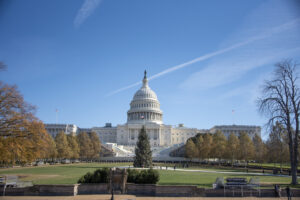
PADUCAH, Ky. (BP) — July 28th marked the centennial of the beginning of the First World War (1914-1918). As indicated by the name for the conflict, the war touched nearly everyone in the world at the time.
Perhaps as many as 16 million soldiers and civilians died in the conflict, and more than 50 million people died from the 1918 influenza pandemic spawned by abysmal wartime conditions. Postwar famines in Eastern Europe and Asia also stemmed from the conflict. Four empires — the Ottoman, German, Russian and Austro-Hungarian — were toppled and replaced by a collection of smaller states. The British government gave legal recognition to the small Jewish community in Palestine with the Balfour Declaration, clearing the way for the eventual establishment of modern Israel.
In addition, postwar instability spawned a series of smaller conflicts in Eastern Europe and the Middle East. The Armenian and Greek genocides began during the war. Finally, 20th century Fascism, Nazism, state Communism and Japanese militarism had roots in World War I and its immediate aftermath.
While nearly the entire world was touched by the conflict, the First World War greatly impacted the Christian community. The war made its mark on at least four aspects of the Christian experience with lasting effects.
1. The war triggered a paradigm shift in the Christian worldview and “end of time prophecy.”
For hundreds of years Christians had read the book of Revelation with its frightening images of the Apocalypse. World War I provided a firsthand look at a real-life apocalyptic world. While many Christian theologians believed the Apocalypse was more allegorical than literal, the Four Horseman of the Apocalypse seemed to come alive during the conflict and its aftermath. War, famine, disease and death occurred on a worldwide stage and on a scale that truly was unprecedented. The war and its destruction marked the beginning of a fundamental shift in the Christian worldview. After the war and over time, Christians felt less positive about their standing in the world and began to express some pessimism about world affairs. The war launched a new interest in “end of time prophecy” that peaked in the latter half of the 20th century as the new millennium neared.
2. Postmillennialism waned among western Protestants.
In the years before World War I, western Protestants largely promoted a view of eschatology called postmillennialism. Postmillennialists believed that Christian teaching and societal reforms would foster a time of increased Gospel success called the millennium prior to Christ’s return. The triumph of the Gospel would usher in responsible human governments promoting peace and prosperity. Human society, postmillennialists believed, was going to improve. Postmillennialists dominated the 19th century abolition and social reform movements popular among many Christians of that century (and into the 20th century as well). Although they viewed many of the social reform movements as incomplete since they had no Gospel element, even prominent Southern Baptists like B.H. Carroll endorsed postmillennialism.
As the horrors of World War I unfolded and uncertainty set in after the conflict, many Christians began to question the idea that human society would get better. Therefore, the First World War marked the beginning of postmillennialism’s decline. Some still adhered to it after the conflict, but a Second World War, the holocaust and a Cold War with the threat of nuclear destruction led most Western Christians to abandon postmillennialism. Human reform had not stemmed the collective evils of the 20th century.
3. Premillennialism started to become popular.
While the First World War began to discredit postmillennialism, the war gave new impetus to a premillennial view of the end times popularized earlier by John Nelson Darby and C.I. Scofield. Premillennialists rejected the belief that the world would get better before Christ returned. They saw in the war proof that human society without Christ was in fact getting worse. Pessimistic about human affairs, they believed that Christ would return soon to redeem the elect from an evil world. Like postmillennialists and amillennialists, premillennialists did not speak with one voice. Some premillennialists held that Christ would collect His own in a rapture before His second coming while others thought believers would have to endure a period of tribulation before Christ’s return. Yet all premillennialists believed the world’s slide into anarchy and evil would not be fully or finally reversed before Christ’s second coming. World War I seemed to offer a contemporary glimpse into the future trauma awaiting the world.
4. Evangelism to a “lost generation” increased.
According to Ernest Hemingway, the American author Gertrude Stein coined the phrase “the lost generation” to reference those who came of age during World War I. Hemingway used the term in three of his works. It proved to be an appropriate label. The war produced disillusionment and experimentation with alcohol, drugs and immorality for many young men and women. In the United States, even in an era of prohibition, the public seemed powerless to prevent the excesses of the war years and the “Jazz Age” that followed.
As Christians had done for previous generations, they reached out to the “lost generation” during and after the war. Believers rallied to support the troops with gifts and charitable donations during the conflict and fed the world’s starving masses afterward. Military chaplains addressed the spiritual needs of the troops both at home and abroad. In the United States evangelists like Billy Sunday and Mordecai Ham (a noted Southern Baptist) led “urban campaigns” to reach both servicemen and civilians for Christ. These campaigns were not new to Christian culture (D.L. Moody pioneered them in the late 1800s), but the war years stimulated their development. Evangelists continued their efforts to reach the “lost generation” well after the war. Sgt. Alvin York, who later became the most decorated American soldier of WWI, became a Christian shortly after the war’s outbreak and remained a lifelong witness to those around him.
Alongside their concern and compassion for the “lost generation,” many Christians championed social reforms to curb the temptations young men were experiencing during the war years. A popular song included the refrain, “How ya gonna keep ’em down on the farm once they’ve seen Paree?” Prohibition (the 18th Amendment), sought by many Christians in the United States and passed during the war (but implemented afterward), sought to end the manufacture, distribution and sale of alcohol. Josephus Daniels, the secretary of the Navy during the war, closed down all houses of prostitution within five miles of a military base, including the famed New Orleans “red light” district of Storyville and other centers of urban vice. While these moves admittedly did little to curb the excesses of the “Jazz Age,” the urban revivals of Sunday, Ham and other evangelists during the 1920s led tens of thousands of the “lost generation” to saving faith in Christ. The urban campaigns proved to be forerunners of the mid-20th century evangelistic “crusades.”
The First World War and its aftermath have influenced Christians right up to the present time. A renewed interest in end of time prophecy, the decline of postmillennialism, the rise of premillennialism, the rise of evangelistic crusades and some of the Christian social reform movements either began, peaked or surged during the war era. What started on July 28, 1914, impacted Christians for the next 100 years.
–30–
Stephen Douglas Wilson, a former member of the SBC Executive Committee, is a writer in Paducah, Ky. Get Baptist Press headlines and breaking news on Twitter (@BaptistPress), Facebook (Facebook.com/BaptistPress) and in your email (baptistpress.com/SubscribeBP.asp).














